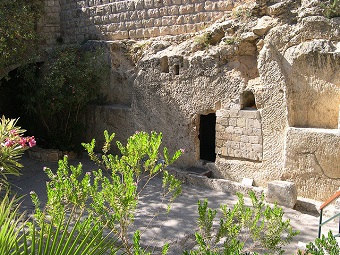THEOLOGY & APOLOGETICS
Evidence of the Resurrection
The "Minimal Facts Argument"
By Mark King
Dr. Gary Habermas of Liberty University has developed what is called the "Minimal Facts Argument." After an extensive survey of historical scholars who study the New Testament, he isolated 4 facts on which there is overwhelming scholarly agreement and one fact upon which there is majority agreement, although not as overwhelming. These scholars are not evangelical, Bible-believing scholars, but scholars who view the New Testament as a human account — a mixture of truth and error, myth, propaganda, etc. but with a kernel of truth that can be discerned through historical investigation. The minimal facts constitute the kernel of truth.
Here are the "minimal facts"
1. Jesus really died by crucifixion.
2. The disciples really believed that Jesus rose from the dead.
3. James, the half-brother of Jesus was skeptical about Jesus but later really believed in the resurrection and became a leader in the church.
4. Paul, a one-time persecutor of the church, really believed that Jesus rose from the dead.
5. The tomb was empty on the "first Easter" morning. (This is the fact that has majority support but not as overwhelming as the others.)
What is interesting is that every alternative theory about the resurrection runs counter to at least one of the minimal facts. For instance:
Jesus Never Existed obviously runs counter to fact #1. No serious historian denies Jesus' existence.
The Swoon Theory states that Jesus did not really die on the cross; he simply swooned — passed out. When he was placed in the cool tomb he revived and went to find his disciples who proclaimed him risen from the dead. This may run counter to fact #1 and does nothing to explain facts 3 and 4. Also, it does a poor job of explaining #2. If Jesus had shown up at the disciples' door in the condition he would have been in, it hardly would have been interpreted as a glorious resurrection.
The Disciples Stole the Body is often floated as a possible explanation but it runs counter to fact #2 and does nothing to explain facts 3 and 4.
The Disciples Hallucinated is another theory. This does not explain facts 3-5.
Paul had a "Guilt" Conversion says that Paul was feeling guilty for the awful way he treated Christians and in the hot sun on the road to Damascus in a weakened physical and psychological state, he had a break with reality and possibly a hallucination as well, and decided that Jesus had risen from the dead. To assuage his guilt, he became a proponent of the faith he once persecuted. This does not explain facts 2, 3, and 5.
The Wrong Tomb theory is that the women and/or the disciples went to the wrong tomb and finding it empty, proclaimed that Jesus had risen. This does not explain facts 3-5.
In order to get around these minimal facts, one has to begin to construct multiple coincidental events that create a "perfect storm" to give rise to the "Easter faith." For instance, some unknown person for unknown reasons stole the body and the disciples finding the tomb empty proclaimed that Jesus had been raised. James felt bad about how he had treated his half-brother in life and now sees this as a second chance. He wants it to be true so badly that he convinces himself. Finally Paul has a hallucination and his guilt conversion. Or perhaps, aliens could have stolen the body and projected a very convincing hologram that fooled people into believing that Jesus was alive. Either one of these theories could explain all of the minimal facts, they are devoid of positive historical evidence. They are mere speculation.
The logical force of this argument is so strong; many current skeptics will simply refuse to offer an explanation of what might have happened. Instead, they will say something like "we can never know what really happened, but we can be sure it was not a resurrection because resurrections are impossible."
You should notice carefully that the "Easter assertion" is not simply that Jesus rose from the dead. If Christians claimed that just somehow, spontaneously, in a freak occurrence, the forces of nature reversed themselves and Jesus came back to life, then skeptics would have a point. Any explanation, however unlikely, is preferable to an impossible explanation. Even Christians would agree that a spontaneous accident of nature which brings someone back to life is impossible. The "Easter assertion" is that God raised Jesus from the dead. If God exists, then there is nothing about a resurrection that is inherently impossible.
So when you see and hear the various theories about Easter this season, ask yourself which of the minimal facts would have to be denied in order for the theory to be true. Also, notice how many of the theories are based on the assumption that a resurrection is impossible because God does not exist.
The minimal facts argument does not "prove" that Jesus rose from the dead but it does show that Christians who believe in the resurrection are not doing it contrary to good historical evidence. I recommend The Case for the Resurrection of Jesus by Gary R. Habermas and Michael Licona.
Image Credit: upyernoz; "Jesus' Tomb"; Creative Commons
Tags: Biblical-Truth | Celebrating-Holidays | Current-Issues | History-Apologetics | Jesus-Christ
comments powered by Disqus
Published 3-30-15

